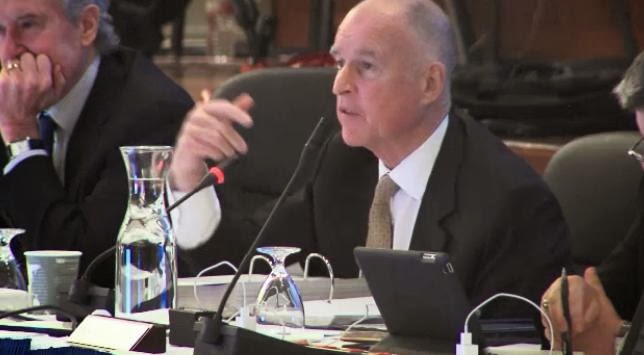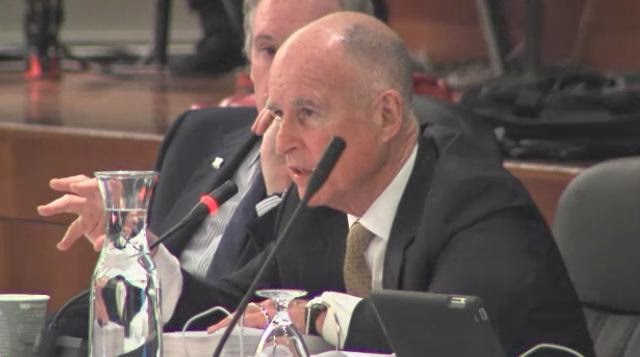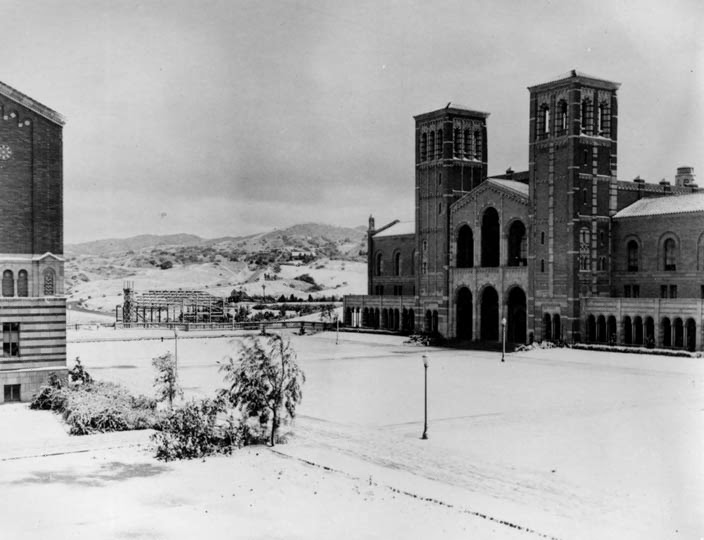We noted in prior posts that there were some leaks of the governor’s proposed budget for 2014-15, which was supposed to be unveiled on Friday. The leaks turned into a flood of Biblical proportions when first the Sacramento Bee published some summary information about the budget yesterday, said to come from the actual budget that the Bee had obtained somehow. Then what appeared to be the budget “summary” – actually a document of 271 pages – appeared online. And then it was announced that the official unveiling would be today at 9 AM instead of tomorrow, confirming that what was online was the real thing.
At the moment, the unofficial/official budget is at:
Presumably, the official documentation will soon be on the Dept. of Finance website. The governor and his finance director generally are the presenters at the media event in which the budget is unveiled. (An advance leak/flood of this type and then a resulting hurried-up media event occurred once under Schwarzenegger.)
First, let’s start – based on what’s currently posted – with the UC news. Two versions of general fund payments to UC appear in the summary document. My guess is that the version with somewhat higher payments to UC included the debt service deal made with the state. (UC has a better credit rating than the state and can borrow at lower interest rates. UC assumed state debt for some past facility obligations and the refinancing saves the state some money.) Version 1 (page 35) shows a 5.7% increase over the current fiscal year; version 2 (page 37) shows a 5.5% increase. There is a lot of language about higher ed needing to be more efficient and innovative – a previous gubernatorial theme. The budget proposes a $50 million innovation fund for all three segments of higher ed to be controlled by a committee involving all three segments plus the Dept. of Finance. Alert #1: Some folks might get nervous about that type of curriculum intervention.
Alert #2: As prior leaks have indicated, there is a lot in the budget document about paying down debt. At one point, there is a chart (page 4) which includes the UC pension and retiree health care unfunded liabilities as part of state debt. This is a BIG DEAL since the Legislative Analyst keeps insisting that the UC retirement unfunded liability is not something for which the state should be considered liable. If the governor and the Dept. of Finance now say that it is a state liability in an official document, that assertion should close the issue. (It won’t, of course, but progress has been made.)
As for the budget itself, it continues the general miasma of state accounting. Yours truly will await the governor’s media conference. But for the moment, let’s focus on the reserve in the General Fund. At the end of last year (June 30, 2013), the state controller put the reserve on a cash basis at MINUS $2.5 billion. The governor, on an accrual basis, put it at PLUS $872 million and now says it was actually PLUS $2.5 billion. No reconciliation between cash and accrual is provided. There is no doubt that with Proposition 30 and the improvement in the state economy, the budget situation has improved. But absent a reconciliation, the suspicion has to be that for cosmetic reasons, the governor wanted a final positive number in the reserve at the end of 2012-13 in his version of the budget – and he got one.
There is much focus in the new budget proposal on creation of a rainy day fund. Of course, the reserve is a rainy day fund (when it is positive) but both Brown and – before him – Schwarzenegger have liked the idea of carving out a kind of additional reserve and labeling that one the rainy day fund. That’s fine, but a reserve is a reserve is a reserve.
If we use the governor’s accrual version of a reserve, he expects to end this year with $4.2 billion in the reserve (June 30, 2014). A year later (June 30, 2015), he proposes in his budget that the reserve plus rainy day fund will total $1.9 billion + $1.6 billion = $3.5 billion. (Page 14) Note that $3.5 billion is less than $4.2 billion, so if the total reserve (including the rainy day fund) is declining, expenditures have to be exceeding revenues, something that ordinary folks would call a deficit. I doubt the word “deficit” will be uttered by either the governor or the finance director. And the governor would say he is paying down past debts that have accumulated to the tune of $11.8 billion in the proposed budget, both to Wall Street (the Schwarzenegger Economic Recovery Bonds) and internally, e.g., debt to K-14 under Prop 98. (Page 9) There is, however, ordinary debt service and discretionary debt service. The Economic Recovery Bonds have to be paid off unless the state were to default. Some of the other internal debts are more “adjustable.”
Stay tuned for more after the media conference.
And finally note that the mishaps in getting out the budget – where a few modest leaks earlier in the week have now become an online sea – may be a bit of online education for the governor. An interesting ride in the last 24 hours, thanks to the governor, in any case:
[youtube http://www.youtube.com/watch?v=i5tIHtbctFQ?feature=player_detailpage]









